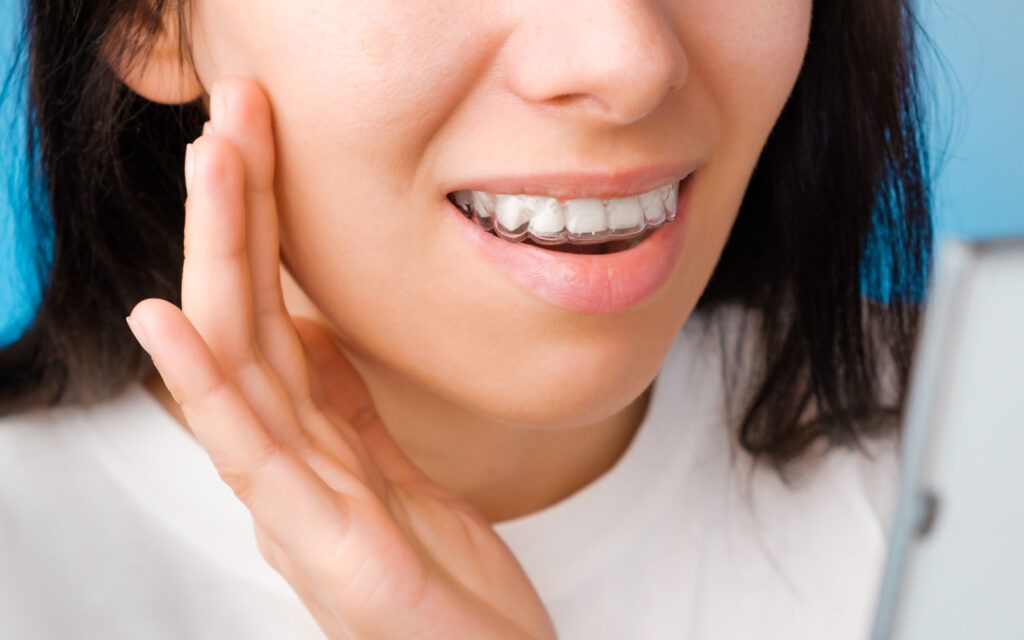Social media has a powerful effect not only on our communications with others but also on our relationships. As an agent for spreading ideas, this product also influences how medical information is spread to patients and affects their attitudes and expectations toward themselves and their image. It has a massive effect on the lives of everyone, and when it comes to social media’s effect on how we view our smiles, the impact is widespread across all generations.
How Does Social Media Impact People’s Smiles
Patients who are looking for ways to connect with dentists use social media as a source of information, connection, and review of their experiences. Outcomes for dental aesthetic treatments have a significant psychological impact on patients, and dentists often have to rely on social media to showcase their cases and treatment results in a simple manner so others can understand. These factors influence the behaviors between patients and dentists, but more so than that, social media’s outside influences and environment often instigate a further drive toward aesthetics and body image.
With over 3.6 billion users worldwide, social media plays an essential role in today’s culture, and with that comes body image. Images that evaluate a certain body type can impact how people see themselves, often because social media is filled with people showcasing themselves in the best light. Negative body images can cause unrealistic expectations of how your body looks, and body-related content can often cause comparisons, manipulations, and accounts designs to appeal to a certain aesthetic.
These effects can also be applied to our oral health, as more people presenting trending aesthetics will often present straighter smiles. While social media can be a credible tool for spreading information about proper dental care, it can also advertise popular aesthetic results and reinforce beauty standards circulating on platforms such as Instagram, Facebook, and TikTok. This has resulted in a phenomenon called smile dysmorphia.
What is Smile Dysmorphia?
Smile dysmorphia is a phenomenon related to negative body image, often working to distort the way people’s smile appears due to social media culture. People suffering from this experience tend to have insecurities about their smiles often, avoiding smiling in public as much as possible, and this often can lead to a warped sense of what’s considered healthy for teeth.
While having straighter teeth has many health benefits, people seeking out perfect smiles will often seek out more cosmetic treatments to address their aesthetic concerns that result in unnecessary treatments that only fuel insecurities rather than cure them. People experiencing deep insecurities with their smiles will compare themselves to impossible standards and try to match those standards regardless of their current health. Treatments most often sought out when faced with this condition include:
- Dental Whitening: For those with intrinsically discolored teeth, dental whitening’s reported to help remove those stains and improve the color of your teeth. However, those faced with negative self-body images and poor perceptions of their smiles will often attempt to overuse at-home treatments, which can damage the enamel and cause tooth sensitivities.
- Gingival Contouring: Gum contouring is often used for patients who have the appearance of “gummy smiles.” These features tend to impact the patient’s ability to brush and floss their teeth effectively, which can increase the risk of gum disease and cavities. Gum contouring can help prevent these issues and resolve some cosmetic problems. However, smile dysmorphia may make an individual feel like they need this procedure when they don’t.
- Enamel Contouring: Similar to gum contouring, enamel contouring works for those who have excessively large or misshapen teeth and can be used to prepare the teeth for cosmetic procedures such as veneers and inlays. When used incorrectly, it can permanently damage the enamel, cause pain sensitivity, and even lead to tooth loss.
Overall, smile dysmorphia is an unrecognized problem in aesthetic dentistry, and it needs to be addressed further to help provide dentists with the resources and information they need to recognize symbols of impactful insecurity in patients and their smiles. Most of all, encouraging healthy treatment and mental health management needs to be reinforced among practices that offer aesthetic services to ensure patients receive the best oral care possible.
If you feel insecure about your smile, speaking with your primary care dentist first can help you address any oral health problems you may experience so you can learn more about your treatment options. By speaking with your dentist, they can know if you have healthy, beautiful teeth and assure you about any insecurities you may have about your smile. In severe cases, recommendations to aesthetic dentists can be used to address both aesthetic and health concerns, giving you the best options out there for treatment that helps you feel yourself the most. For more information contact your primary dentist for more information about treatment options.




